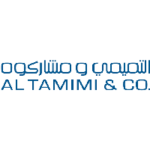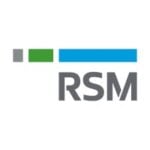-
What are the relevant government entities relating to immigration in your jurisdiction?
Immigration in Nigeria is regulated by a combination of primary authorities that set policy and enforce immigration laws, and secondary agencies that provide sector-specific oversight or operational support. The key entities are as follows:
Primary Regulators
- Federal Ministry of Interior (FMI): Responsible for the formulation and implementation of immigration policy, issuance of expatriate quotas, and approval of certain classes of business and work permits (Permanent Until Reviewed – PUR).
- Nigeria Immigration Service (NIS): The principal agency overseeing entry into and exit from Nigeria, issuance of visas, residence permits, work permits (Combined Expatriate Residence Permit and Aliens Card – CERPAC), and enforcement of immigration laws.
Secondary/Supporting Agencies
- Ministry of Foreign Affairs (MFA): responsible for formulating, articulating, and pursuing Nigeria’s foreign policy objectives. The MFA provides support and assistance to Nigerian citizens traveling or living overseas. This includes issuing passports, visas, and other consular documents, as well as providing assistance in emergencies.
- Nigeria Customs Service (NCS): Handles customs and excise at points of entry; works with NIS in border management, particularly for goods and persons crossing borders.
- National Agency for the Prohibition of Trafficking in Persons (NAPTIP): Works with the NIS and other agencies on anti–human trafficking and migrant protection initiatives.
- Nigerian Content Development and Monitoring Board (NCDMB): Regulates compliance with Nigerian content requirements in the oil and gas sector, which can include oversight of expatriate staffing plans and linkage with work permit/expatriate quota processes.
- Nigerian Investment Promotion Commission (NIPC): Facilitates business investment in Nigeria, through the issuance of Certificate of Business Registration to corporates with foreign participation, which often involves coordinating with the FMI and NIS on immigration matters.
-
What are the options available for sponsor-based employment in your jurisdiction and timelines involved in securing a work permit?
In Nigeria, foreign nationals may only undertake employment where sponsored by a locally registered company. The sponsoring entity must obtain the necessary authorisations from the Federal Ministry of Interior (FMI) and the Nigeria Immigration Service (NIS) before the individual can commence work.
For long-term employment, the most common route is the Subject-to-Regularisation (STR) visa, which ultimately leads to the issuance of a Combined Expatriate Residence Permit and Aliens Card (CERPAC) popularly called the Green Card. However, before an STR application can be made, the sponsoring company must secure an Expatriate Quota Approval from the FMI. This quota is not a work permit in itself; rather, it is a formal allocation specifying the roles, number of positions, and tenure for which expatriates may be employed. Once the quota is in place, the prospective employee applies for an STR visa at a Nigerian mission abroad, using the quota approval and employment documentation. On arrival in Nigeria, the individual applies to the NIS to regularise their stay, after which a CERPAC is issued, granting both residence and work authorisation and renewable yearly. The quota approval process generally takes four to six weeks, STR visa issuance one to three weeks, and the CERPAC takes two to four weeks after arrival.
For short-term assignments, the Temporary Work Permit (TWP) is the preferred option. This is suitable for technical, specialist, or urgent work and is typically valid for up to 90 days without renewal. The sponsoring company applies to the NIS for TWP approval, which is transmitted to the relevant Nigerian mission abroad for visa issuance. Processing is usually completed within one to two weeks, provided the application is complete and fees are paid promptly.
-
What are the primary options available for unsponsored work and investment in your jurisdiction?
Nigeria does not generally permit foreign nationals to work without a local sponsor; however, there are limited pathways for unsponsored economic participation, typically tied to investment or self-employment. The principal route is through the Business Visa, which allows entry for short-term business activities such as meetings, negotiations, and exploratory visits, but does not confer work authorisation.
For long-term unsponsored activity, foreign nationals may establish or invest in a Nigerian company under the Nigerian Investment Promotion Commission (NIPC) framework. Upon registering the company and obtaining a Business Permit as well as an Expatriate Quota from the Federal Ministry of Interior, the investor may apply for an STR Visa and subsequently apply for a Combined Expatriate Residence Permit and Aliens Card (CERPAC) in a self-sponsored capacity, provided the company meets the minimum foreign equity investment requirements (currently 100,000,000 for wholly foreign-owned entities). This structure allows the investor to manage and work within their own enterprise without requiring a separate sponsoring employer.
In the oil and gas sector, foreign participation must also comply with the Nigerian Content Development and Monitoring Board (NCDMB) regulations, which may influence staffing and operational models for investor-led ventures.
-
What are the requirements for becoming a sponsor of employment-based migrants and what are the role and reporting duties of sponsors?
In Nigeria, a sponsor of employment-based migrants must be a locally incorporated entity with the legal capacity to employ staff. To sponsor foreign employees, the company must first obtain a Business Permit (for wholly or partially foreign-owned companies) from the Federal Ministry of Interior (FMI) and secure an Expatriate Quota Approval allocating specific roles to expatriates. The entity must also be registered with the Nigeria Immigration Service (NIS) for processing visas and residence permits on behalf of its foreign staff.
The sponsor’s primary role is to facilitate the lawful entry, stay, and employment of the migrant worker. This includes obtaining the appropriate visa (e.g., Subject-to-Regularisation visa for long-term employment or Temporary Work Permit for short-term assignments), ensuring timely regularisation of stay, and securing the Combined Expatriate Residence Permit and Aliens Card (CERPAC).
Sponsors have ongoing compliance and reporting obligations. These include notifying the FMI and the NIS of the assumption of duty, change of role, or termination of the migrant’s employment; renewing quotas and residence permits before expiry; and ensuring that expatriates work only in the roles approved. Sponsors are also required to file periodic returns with the NIS and the FMI on the utilisation of their expatriate quota positions, detailing both expatriate and Nigerian understudy arrangements, in line with localisation requirements. Failure to comply may result in fines, quota revocation, or restrictions on future immigration applications.
-
Are applications filed electronically, or paper base? Is a physical visa/work permit document issued or is an electronic approval issued?
In Nigeria, the application process for sponsor-based employment permits follows a hybrid system that combines both electronic and paper-based procedures. For key approvals such as the Expatriate Quota and Business Permit, applications are generally initiated online via the Federal Ministry of Interior’s portal.
While the process begins electronically, supporting documents are often required both electronically and in hard copy, and applicants (or their representatives) may need to attend physical appointments or follow up with relevant authorities.
For employment-related visas such as the subject to regularization and the temporary work permit, applications are also hybrid. Initial applications are submitted electronically through the Nigeria Immigration Service Portal. The applicant is then required to schedule an appointment with the relevant Nigerian embassy or consulate in the applicant’s country of residence to obtain a physical visa.
For certain visa categories, like the Business visa, Nigeria has recently introduced an e-visa system, which enables applicants to begin the visa process online and, receive electronic pre-approvals online without the need to visit any embassy.
After arrival in Nigeria particularly in the case of the e-visa or the subject to regularization visa holders, the foreign national must complete the regularization process via a physical biometric process in the case of the e-visa or obtaining the CERPAC in the case of the STR Visa.
-
Is an in-person attendance/interview required as part of the visa/work permit application process? Is an individual required to enrol their biometrics (digital photo, fingerprint scan) as part of the visa/work permit process?
Yes, the application process for a Nigerian visa or work permit typically begins online. However, in-person attendance is required through the submission of relevant documents at the Nigerian embassy or consulate in the applicant’s country of residence to enrol their biometric. For all applicants, an in-person interview is compulsory for a work permit/visa. All expatriates who intend to reside and work in Nigeria are mandatorily required to enrol their biometrics including digital photographs and fingerprints at the embassy.
-
What persons qualify as dependants? Can dependants work based on their dependant visa status? Are there any restrictions?
Individuals who qualify as dependants under immigration regulations typically include; spouses, children under the age of 18 as well as aged parents, usually those aged 65 years and above, who are accompanying an expatriate employed under an approved quota. These dependants are granted residence based on their relationship to the primary visa holder and are issued visas under the dependant categories. Dependants are permitted to reside in Nigeria but are not allowed to engage in any form of employment while on a dependant visa. The purpose of this visa category is strictly to enable them to live in the country alongside the principal expatriate; it does not grant the right to work.
Where a dependant of a foreign employee wishes to take up employment in Nigeria, they must independently secure sponsorship from a Nigerian entity and obtain the relevant work authorisations in their own right.
-
What is the general time frame and processes for obtaining permanent residence and citizenship for sponsored and unsponsored business-related immigration?
Nigeria does not have a direct path to permanent residence or citizenship through employment sponsorship alone. The primary routes available to foreign nationals are through long-term residence, investment, or special categories granted by the Federal Government.
For permanent residence, the most common option is the Permanent Residence Permit (PRP) issued by the Nigeria Immigration Service (NIS) under the authority of the Federal Ministry of Interior (FMI). Eligibility is generally based on marriage to a Nigerian citizen, retirement after long service in Nigeria, or exceptional economic contribution. Business investors may also qualify where they have maintained substantial investments and residency over time. Processing is case-specific and may take several months to a year, depending on ministerial approvals and security clearance.
For citizenship, the Constitution of the Federal Republic of Nigeria recognises acquisition by naturalisation or registration. A foreign national who has resided in Nigeria for at least 15 continuous years may apply for naturalisation, while a person married to a Nigerian citizen may apply for registration after a shorter qualifying period (typically 5 years). Applications are made to the Federal Ministry of Interior and involve extensive background checks, security vetting, and final approval by the President of Nigeria. Timelines vary significantly, but in practice the process often extends beyond three (3) months.
For business-related immigration, foreign investors who establish and maintain companies under the Nigerian Investment Promotion Commission (NIPC) framework, meet the minimum equity thresholds, and contribute demonstrably to the economy may be considered for long-term residence and, eventually, citizenship by naturalisation.
However, both permanent residence and citizenship remain discretionary, heavily reliant on ministerial and presidential approval, and are not guaranteed by virtue of sponsorship or investment alone.
-
What productive type activities can a business visitor undertake and for how long?
A business visitor in Nigeria is permitted to engage in a variety of productive, non-remunerative activities that promote commerce, partnerships, and investment. These visits are intended to foster international collaboration and business development without constituting formal employment. While in Nigeria, business visitors may attend meetings, conferences, and seminars to establish partnerships, negotiate contracts, or represent their home organization.
They may also conduct market research or feasibility studies to explore opportunities and gain insights into the Nigerian business environment. A business visa, typically valid for up to 90 days, is available to foreign nationals entering Nigeria for short-term business engagements. It is important to note that a business visa does not constitute a work permit and cannot be converted into one.
-
Can remote work be carried out from your country?
Yes, remote work can be carried out from Nigeria. There are no specific legal restrictions preventing individuals, whether citizens, residents, or foreign nationals with a valid visa, from working remotely within the country. This is allowed as long as the nature of the work does not violate local laws or require specific licensing, such as in the case of regulated professions.
-
Are there any productive work / revenue generating activities that can be carried out as a visitor and without the need for a work permit? If so, what activities and for how long?
No. Visitors without a valid work permit are generally prohibited from engaging in any remunerative activities or employment. Nigeria’s immigration laws distinctly differentiate between business visitors who are permitted to undertake specific limited activities and individuals who must obtain work permits to carry out paid or revenue-generating work.
Any activity that involves actual work, provision of services for remuneration in Nigeria, or participation in the local labour market requires a work permit, such as a Temporary Work Permit (TWP) or, for longer engagements, an STR visa leading to a CERPAC.
-
Is there a remote work or nomad visa category in your jurisdiction? If not, how likely is it that this will be implemented in future?
Nigeria does not currently have a dedicated remote work or digital nomad visa category. Immigration regulations remain structured around traditional entry types: business visas for short-term business visits, Temporary Work Permits (TWPs) for specific work assignments, and Subject-to-Regularisation (STR) visas leading to CERPAC for long-term employment. None of these categories is designed to accommodate foreign nationals who wish to live in Nigeria while working remotely for employers or clients abroad.
While there have been global trends toward digital nomad visas, particularly in Europe, the Caribbean, and parts of Africa, Nigeria has not yet signalled concrete plans to introduce such a scheme. Given Nigeria’s focus on foreign direct investment, local job protection, and regulatory control over expatriate employment through the expatriate quota system, the likelihood of a digital nomad visa being introduced in the near term is low.
That said, Nigeria is actively positioning itself as a regional technology and innovation hub through initiatives such as the National Digital Economy Policy and Strategy and targeted reforms in the startup and tech ecosystem. As the digital economy expands and cross-border remote work becomes more mainstream, a policy shift to attract digital nomads and location-independent professionals could emerge in the medium to long term, especially as a tool to drive tourism, technology transfer, and foreign exchange inflows.
-
How easy is it to switch visa categories/jobs/employer from within country? And/or if made redundant, can the individual regularise their stay in another capacity and what is the timeframe allowable?
Nigeria maintains a relatively strict immigration regime, and switching visa categories or changing employment from within the country is not as seamless. A foreign national employed under an STR visa and CERPAC is tied to the sponsoring company and to the expatriate quota position under which they were admitted. If the individual changes employer, the new company must hold an available expatriate quota slot and initiate a fresh sponsorship process, including filing a new application with the Nigeria Immigration Service (NIS) and notifying the Federal Ministry of Interior (FMI). The individual cannot simply transfer their existing CERPAC as this is against the law. The former employer must notify the FMI and delete said expatriate from the company’s quota and then the new employer can sponsor the expatriate afresh. In practice, this process may take several weeks, depending on the completeness of documentation and government processing.
Switching between visa categories (e.g., from visitor or business status to employment) is not allowed. The general rule is that the individual must exit Nigeria and reapply from abroad under the new category.
Where an expatriate is made redundant or their employment is terminated, the sponsoring company is obliged to notify the NIS and the FMI, and the individual’s work authorisation becomes invalid. The person is expected to leave the country immediately unless they can immediately secure new sponsorship or qualify under another status (such as dependant). There is no formal statutory grace period.
From a compliance perspective, overstaying, engaging in unauthorised employment, or failing to regularise status exposes both the expatriate and the sponsoring employer to significant risks, including administrative fines, quota revocation, blacklisting of the company, and potential deportation of the individual.
-
What common issues or concerns may arise for employers under business immigration in your jurisdiction?
Employers in Nigeria navigating business immigration often encounter several recurring challenges. A primary issue is quota management: expatriate quotas are tied to specific positions and require strict compliance, including filing returns and renewing quota slots periodically. Failure to adhere to these obligations can result in quota withdrawal or refusal of future applications.
Another concern is the processing time and administrative bottlenecks at the Nigeria Immigration Service (NIS) and Federal Ministry of Interior, which can delay the onboarding of expatriates and disrupt business operations. Employers also face compliance risks where employees overstay their visa validity or engage in work outside the scope of their authorisation, as such infractions may attract fines, penalties, or even blacklisting of the sponsoring company.
Additionally, regulatory unpredictability is a common issue, as sudden changes in immigration policies or directives (for example, tighter scrutiny on documentation or variations in ministerial discretion) can affect planning and workforce mobility. Employers must also bear the burden of reporting and monitoring obligations, such as filing expatriate monthly returns, ensuring prompt renewal of CERPAC cards, and notifying NIS of changes in employment status.
Finally, employers may encounter employee resistance to localisation policies, which require succession planning and training of Nigerian understudies to take over expatriate roles within a defined period. Non-compliance in this area is closely monitored and can have reputational and legal consequences.
-
Is there a fast track process / certification that business can obtain to expedite visa / permit processing?
Nigeria does not currently operate a formal “fast-track” or premium processing scheme for work permits and visas, unlike some other jurisdictions. However, certain mechanisms exist that can lead to faster processing timelines for businesses that meet specific criteria.
Firstly, companies that have obtained a Business Facilitation or Pioneer Status through the Nigerian Investment Promotion Commission (NIPC), or that are registered with key regulatory bodies such as the Nigerian Content Development and Monitoring Board (NCDMB) for the oil and gas sector, often enjoy priority handling of expatriate quota applications and related approvals. Similarly, major investors and large multinationals with significant economic contributions sometimes receive ministerial discretion for expedited processing.
Secondly, some public-private partnership initiatives and reforms under the Presidential Enabling Business Environment Council (PEBEC) aim to streamline business immigration procedures, although in practice, processing times can still vary depending on workload and administrative bottlenecks.
Lastly, companies that demonstrate consistent compliance with immigration laws, including timely filing of expatriate returns, adherence to quota obligations, and localisation commitments, are more likely to experience smoother and quicker approval processes.
In essence, while there is no universally recognised “fast-track” certification, strategic registration, regulatory compliance, and government relationships can serve as practical tools to expedite immigration processes in Nigeria.
-
What are the recent trends, both political and social that have impacted (or are anticipated to impact) your jurisdiction with regard to immigration policy and law?
In recent years, Nigeria’s immigration landscape has been influenced by a mix of political, economic, and social developments that continue to shape policy direction and enforcement.
1. Economic Diversification and Investment Drive
The government has been actively seeking foreign investment beyond the oil and gas sector, particularly in technology, manufacturing, and services. This has driven reforms under the Presidential Enabling Business Environment Council (PEBEC) and the Nigerian Investment Promotion Commission (NIPC) to make business immigration more attractive and less cumbersome. Immigration policy is being aligned with broader economic goals to encourage expatriate talent inflow while balancing localisation needs.
2. National Security Concerns
Heightened insecurity from terrorism, banditry, and transnational crime has led to stricter scrutiny at borders and tighter monitoring of foreign nationals. The Nigeria Immigration Service (NIS) is increasingly focused on ensuring that work and business visas are not misused as cover for illegal activities. This trend is likely to persist, resulting in more stringent due diligence for companies sponsoring expatriates.
3. Localisation and Job Protection Pressures
There has been growing social and political pressure to prioritise Nigerian workers in employment opportunities, particularly in sectors with high unemployment rates. As a result, the Expatriate Quota (EQ) regime is being more rigorously enforced, with authorities demanding clear evidence of training and succession plans for Nigerians. This reflects a broader push for technology transfer and capacity building.
4. Digitalisation and E-Governance
In line with global trends, Nigeria has been digitising immigration processes, including e-visa applications, online expatriate quota submissions, and biometric monitoring. While the rollout has faced technical challenges, the long-term trend is toward more transparent and automated systems that reduce physical interactions with officials and improve compliance monitoring.
5. AfCFTA and Regional Integration
Nigeria’s participation in the African Continental Free Trade Area (AfCFTA) has reinforced commitments to ECOWAS free movement protocols, facilitating cross-border trade and mobility for regional nationals. However, balancing regional integration with domestic job protection remains a delicate issue.
6. Social Attitudes Toward Foreign Workers
There is a noticeable increase in public scrutiny of foreign nationals, particularly in sectors/industries where locals feel displaced. This has led to louder calls for the government to review immigration policies to favour Nigerians, which in turn pressures regulators to enforce localisation provisions in relevant legislations more strictly.
Anticipated Impacts
- Continued tightening of the Expatriate Quota system and stricter compliance audits.
- More digital reforms to streamline immigration services.
- Potential introduction of new investor-friendly visa categories to attract capital and talent in priority sectors such as tech and renewable energy.
- Sustained emphasis on training Nigerians to replace expatriates over time, reflecting both political will and social expectation.
-
How has the COVID-19 pandemic shaped current immigration landscape in your jurisdiction?
The COVID-19 pandemic had a profound effect on Nigeria’s immigration system, shaping both current policy and operational practices:
Border Closures and Travel Restrictions
Nigeria imposed stringent border closures and entry bans during the pandemic, allowing entry only for citizens, residents, and those on essential missions. This experience has reinforced a more cautious approach to global health risks, with the government now more prepared to impose sudden restrictions in the event of new pandemics.
Shift Toward Digitalisation
COVID accelerated the digital transformation of immigration processes, including online visa applications, expatriate quota submissions, and e-payments. The Nigeria Immigration Service (NIS) invested more in automation to reduce physical contact, a trend that remains in place today.
Work-from-Anywhere & Remote Work Realities
The pandemic highlighted gaps in Nigeria’s immigration framework concerning remote workers and digital nomads, categories not formally recognised in existing law. While no official visa has been introduced yet, there is increasing policy discussion on adapting immigration frameworks to new global work patterns.
Stricter Health & Safety Protocols
COVID-era health requirements (PCR tests, vaccination proof, quarantine) reshaped border management. Although most restrictions have been lifted, the NIS and Port Health Services now place greater emphasis on traveller health declarations and biosecurity, which may continue in future reforms.
Impact on Labour Mobility & Quota Enforcement
Many expatriates left Nigeria during the pandemic, and businesses faced challenges renewing quotas or regularising permits due to office closures and backlogs. Post-pandemic, regulators have become stricter on ensuring local content compliance, partly to mitigate reliance on foreign labour during travel restrictions.
Economic Recovery and Talent Attraction
Post-COVID, the Nigerian government views immigration as a tool for economic recovery and investment attraction, particularly in technology and healthcare. There is a growing push to attract foreign talent while still balancing localisation policies.
Ongoing Influence
- The pandemic accelerated digital immigration services, a shift that is now permanent.
- Policymakers remain alert to biosecurity threats, meaning immigration law will increasingly intersect with public health regulation.
- There is pressure to modernise immigration categories to address global shifts in work mobility (remote work, short-term assignments, and regional mobility).
-
Are there any new and / or anticipated changes impacting immigration law and / or policy in your jurisdiction?
Nigeria has recently undergone significant reforms in its immigration framework, reflecting a broader governmental push to digitise processes, enhance revenue generation, and align with global best practices in business migration. These reforms have practical implications for corporates, investors, and expatriates seeking to establish or maintain operations in Nigeria.
Key developments include:
Introduction of E-CERPAC: The Combined Expatriate Residence Permit and Alien Card (CERPAC) system has now migrated to an electronic platform, streamlining application, renewal, and verification processes. While the digitisation aims to improve efficiency and transparency, employers are required to adapt to stricter compliance monitoring.
Expansion of E-Visa Regime: Nigeria has broadened its e-visa platform, allowing certain visa categories, including entry for business and work purposes, to be processed online. This is intended to reduce bureaucratic bottlenecks and facilitate easier business travel, though in practice processing timelines can still vary.
Revised Temporary Work Permit (TWP) Categorisation: The Federal Ministry of Interior has introduced clearer sub-categories within the TWP framework, aimed at differentiating between short-term technical assignments and longer, project-based engagements. This reform seeks to provide greater regulatory clarity but requires employers to ensure precise alignment between assignments and visa types.
Increased Fees and Stricter Cost Regime: The Ministry of Interior has significantly increased application and processing fees across several immigration services. This reflects Nigeria’s revenue-generation priorities and places a higher compliance and financial burden on sponsors and employers.
Enhanced Compliance Oversight: Employers sponsoring expatriates are now subject to more rigorous reporting duties, particularly around quota utilisation, project status, and localisation commitments. Regulatory scrutiny is expected to intensify, with greater penalties for non-compliance.
Looking ahead, further digitisation of immigration processes, stricter enforcement of localisation policies, and increased inter-agency collaboration between the Nigerian Immigration Service, the Federal Ministry of Interior, and sectoral regulators (such as the NCDMB and NIPC) are anticipated. These developments underscore the need for employers to adopt proactive compliance strategies, maintain robust documentation, and budget for the higher cost of maintaining expatriate staff in Nigeria.
-
How do you see technology developing and evolving to support immigration process in the future?
Technology is expected to play an increasingly transformative role in Nigeria’s immigration framework, mirroring global shifts towards digitisation, automation, and data-driven compliance. Recent reforms, such as the migration of CERPAC to an e-platform, the expansion of e-visa categories, and the introduction of online quota management portals, are clear indicators of this trajectory.
Looking forward, we anticipate:
Full Digitalisation of Application Processes: The transition from manual filings to end-to-end electronic applications will reduce paperwork, expedite decision-making, and limit face-to-face interactions. This will align Nigeria more closely with international best practices.
Integration of Artificial Intelligence & Data Analytics: AI-driven systems may be deployed to screen applications, flag risks, and detect fraud. This would increase efficiency but could also raise due process and data protection concerns if not accompanied by clear regulatory safeguards.
Biometric & Identity Management Enhancements: With Nigeria’s growing emphasis on national identity (via NIN integration), immigration processes are likely to become more closely tied to biometric databases. This will improve verification and monitoring of expatriates but may also present privacy and interoperability challenges.
Cross-Agency Platforms: Future reforms are expected to link immigration processes with tax, labour, and investment regulatory bodies. This would enable real-time monitoring of compliance, quota utilisation, and expatriate contributions to localisation initiatives.
Employer-Focused Dashboards: Corporates may gain access to centralised portals to track quota balances, pending applications, and renewal deadlines, reducing the administrative burden and improving regulatory visibility.
While Nigeria’s adoption curve may be gradual, the policy direction is clear: technology will underpin efficiency, compliance enforcement, and transparency. However, the pace of progress will depend heavily on infrastructure investments, political will, and inter-agency coordination.
-
What are the Right to Work requirements in your jurisdiction?
In Nigeria, the right to work for foreign nationals is strictly regulated and tied to compliance with immigration and labour policies. Employers are required to secure the appropriate authorisations before a non-Nigerian can lawfully take up employment.
The key requirements are as follows:
Expatriate Quota Approval (EQA): Employers intending to engage foreign nationals must obtain an Expatriate Quota from the Federal Ministry of Interior. This serves as authorisation to employ expatriates for specific roles where local skills are deemed insufficient. The quota approval sets out the number of positions, job designations, and duration for which expatriates can be engaged.
Subject-to-Regularisation (STR) Visa and CERPAC: A foreign national must first obtain an STR Visa from a Nigerian Mission abroad, following which their employer must apply for regularisation of their stay. Successful applicants are issued a Combined Expatriate Residence Permit and Alien Card (CERPAC), which doubles as both residence and work authorisation.
Temporary Work Permits (TWP): For short-term or project-specific assignments (usually up to 90 days, with possible extension), employers must secure a Temporary Work Permit on behalf of the expatriate. TWPs do not confer residency rights and are limited to specific assignments or services.
Compliance with Localisation Requirements: The EQA is subject to a localisation policy, requiring employers to train and designate Nigerian understudies to eventually take over the roles occupied by expatriates. Failure to implement this can affect quota renewals and expose employers to sanctions.
Other Regulatory Interlocks: Employers must also comply with ancillary requirements, including registration with the Nigerian Social Insurance Trust Fund (NSITF), Industrial Training Fund (ITF), and Pension Commission (PenCom), where applicable, to demonstrate broader employment compliance.
Overall, the right to work is not automatic but contingent upon strict employer-led processes. Employers face significant compliance obligations, while employees are restricted to the roles and tenures specified under the quota and authorisations granted.
-
What are the types of civil and criminal penalties employers may face for non-compliance with immigration rules i.e. employing an individual who does not have the Right to Work?
Nigeria adopts a strict compliance regime in relation to business immigration, and employers who engage expatriates without the requisite authorisation face both civil and criminal exposure. Enforcement is not only punitive but also corrective, reflecting the government’s localisation policy and focus on strengthening regulatory oversight.
Civil Penalties:
Employers risk significant monetary fines for infractions such as employing expatriates without Expatriate Quota (EQ) approval, failure to obtain a Combined Expatriate Residence Permit and Alien Card (CERPAC) or permitting an overstay under a Temporary Work Permit (TWP). Fines typically range from ₦1,000,000 to ₦3,000,000 per violation, depending on the severity. Companies may also suffer suspension or outright revocation of their existing quota positions, delays in processing new applications, and closer scrutiny in subsequent dealings with the Nigerian Immigration Service (NIS) and Ministry of Interior.
Criminal Penalties:
Directors, managers, and officers of defaulting companies may face personal criminal liability where negligence or wilful misconduct is proven. Sanctions include prosecution, custodial sentences, and in severe cases, blacklisting of both the company and its officers from sponsoring future expatriates.
Administrative Sanctions:
The NIS may deport expatriates found to be working without valid authorisation and impose re-entry bans. Defaulting companies may also be subjected to compliance audits, regulatory reporting obligations, and adverse reputational consequences, particularly where infractions become public.
Practical Enforcement Trends:
In recent years, there has been an uptick in spot-check audits by the NIS, especially in industries such as oil & gas, construction, and telecoms where expatriate use is prevalent. In several instances, companies have faced fines exceeding ₦10,000,000 for systemic breaches, coupled with the suspension of new EQ approvals until corrective measures were taken.
Employers are therefore well advised to adopt robust immigration compliance systems, including internal audits, timely renewal of permits, training of HR teams, and periodic legal reviews. Early engagement with regulators and experienced counsel remains the most effective way to mitigate risk and avoid reputational or financial exposure.
-
Are there labour market testing requirements in your jurisdiction and if so, what do they involve?
Nigeria does not operate a single codified labour market testing (LMT) framework across all industries. However, the principle of prioritising local talent over expatriates is deeply embedded in the country’s immigration and regulatory regime. LMT requirements are therefore implemented through a mix of immigration law and sector-specific localisation frameworks, with varying levels of formality and enforcement.
General Immigration Framework – Expatriate Quotas (EQ):
Employers seeking to engage foreign nationals must obtain an Expatriate Quota (EQ) from the Ministry of Interior. Approval is conditional upon the employer demonstrating that the requisite skills are not readily available locally. Each approved expatriate role must be paired with two Nigerian understudies, supported by a structured training and localisation plan. EQ renewals are scrutinised to ensure meaningful skill transfer. While not a classic LMT in the sense of mandatory pre-recruitment advertising, this framework functions as a skills localisation mechanism.
Oil and Gas Sector – Formal LMT through the NCDMB:
The Nigerian Oil and Gas Industry Content Development Act (2010) and regulations issued by the Nigerian Content Development and Monitoring Board (NCDMB) impose a more stringent LMT regime. Companies in this sector are required to:
- Advertise job vacancies in Nigeria before seeking to import foreign expertise.
- Provide evidence that no suitably qualified Nigerian candidates are available.
- Obtain NCDMB approval for expatriate placements, which are closely monitored in conjunction with the Ministry of Interior.
This represents the clearest form of a formalised labour market testing requirement in Nigeria.
Other Regulated Sectors – Banking and Telecommunications:
While not subject to statutory LMT in the same way as oil and gas, the Central Bank of Nigeria (CBN) and the Nigerian Communications Commission (NCC) impose stringent localisation expectations. These regulators require institutions to limit expatriate roles to highly specialised positions, ensure a clear succession plan for Nigerian replacements, and, in practice, often resist approvals unless a compelling case is made. Employers in these sectors must therefore maintain strong compliance records and training programmes to meet regulatory scrutiny.
In practice, Nigeria’s approach reflects a tiered system:
- General EQ framework serving as a baseline localisation mechanism across all sectors.
- Formal LMT (including mandatory advertising) in oil and gas sector.
- De facto localisation pressure in banking, telecoms, and other regulated industries.
Employers who fail to meet these obligations risk denial of expatriate quota approvals, withdrawal of existing quotas, regulatory sanctions, and in some cases financial penalties.
-
Are there quota requirements, restrictions or a cap on the numbers of foreign nationals hired per company in your jurisdiction?
Nigeria regulates the employment of foreign nationals primarily through the Expatriate Quota (EQ) system, which is administered by the Federal Ministry of Interior under the Immigration Act 2015 and its subsidiary regulations. The EQ regime places limits on the number of expatriates a company may employ, specifies the positions that may be occupied by foreigners, and prescribes the duration for which such approvals are valid. In practice, the number of slots granted to a company depends on factors such as its size, sector, capital base, and the justifications advanced for the proposed roles.
A key feature of the EQ system is the mandatory requirement for every expatriate position to have two Nigerian understudies each. The purpose is to ensure skill transfer within the quota period, and renewal of quota approvals is usually contingent upon demonstrating progress in the development of the understudies. While there is no universal statutory cap on the number of foreigners that may be hired by a company, the Ministry of Interior exercises discretion and generally seeks to ensure that expatriates make up only a small proportion of the workforce.
Sector-specific regulators also impose further restrictions. In the oil and gas industry, the Nigerian Content Development and Monitoring Board (NCDMB) subjects expatriate employment to rigorous justification and succession planning, approving only those positions for which Nigerians demonstrably lack expertise. Similarly, the banking and telecommunications sectors are closely monitored by the Central Bank of Nigeria (CBN) and the Nigerian Communications Commission (NCC) respectively, both of which enforce localisation policies and restrict the number of expatriates in managerial and technical roles.
In effect, while Nigerian law does not prescribe a fixed numerical cap, the expatriate quota system functions as a practical limitation, ensuring that the engagement of foreign nationals is exceptional, transitional, and tied to the development of local capacity rather than forming the permanent core of a company’s workforce.
-
Are there any exit procedures in your jurisdiction, if an individual is departing permanently?
Yes, in Nigeria, there are established exit procedures for foreign nationals departing permanently, though these are not consolidated into one codified regime. Employers are required to notify the Nigerian Immigration Service (NIS) and the Federal Ministry of Interior of the cessation of employment, particularly where the expatriate was employed under an Expatriate Quota (EQ). In such cases, the employer must formally release the quota slot and arrange for the cancellation of the expatriate’s Combined Expatriate Residence Permit and Aliens Card (CERPAC).
In addition, the expatriate is required to settle all outstanding tax liabilities and, in practice, obtain a tax clearance certificate before departure. Employers must also ensure that statutory PAYE deductions and other social security obligations have been fulfilled. Where applicable, pension repatriation and terminal benefits should be processed prior to the employee’s exit.
All travellers leaving Nigeria must now also complete digital exit forms before departure.
Taken together, these steps; quota release, CERPAC cancellation, immigration notification, and tax compliance, constitute the recognised exit procedures for expatriates permanently departing Nigeria.
-
Are there any requirements for medical certificates or vaccinations for your jurisdiction?
Yes, Nigeria requires certain medical certifications and vaccinations for entry, residence, and work authorisations. The most consistent requirement is evidence of yellow fever vaccination, which is mandatory for all entrants into Nigeria and must be supported by an International Certificate of Vaccination or Prophylaxis (ICVP). Immigration officials may restrict or deny entry to individuals unable to produce this certificate.
Additionally, depending on global health advisories, Nigeria may impose temporary vaccination or medical testing requirements (such as polio or COVID-19 vaccination certificates or negative PCR results) as part of entry and stay conditions.
Overall, medical certificates and vaccination requirements are both a health and compliance safeguard within the Nigerian immigration regime.
-
Are there any language requirements for your jurisdiction?
No, there are currently no formal language requirements under Nigerian immigration law for foreign nationals seeking entry, residence, or work authorisation. Proficiency in English, the official language of Nigeria, is not a statutory prerequisite for securing visas, work permits, or residence permits.
In practice, English serves as the primary language of business, government communication, and official documentation. Consequently, foreign nationals who are unable to communicate effectively in English may face practical challenges in the workplace, in dealings with government agencies, and in complying with regulatory processes. Employers in highly regulated industries such as banking, oil and gas, and telecommunications may, therefore, set their own internal requirements for English proficiency to ensure smooth business operations and regulatory compliance.
In essence, while no legal mandate exists, English remains the de facto working language, and employers may consider language requirements as a matter of business necessity.
-
What are the government costs associated with a typical employment based visa?
Government filing fees for employment-based visas in Nigeria are not uniform but vary by nationality and visa category. Entry visa charges typically range from USD 150 to USD 363, depending on the applicant’s country of origin and the specific class of visa, such as the Temporary Work Permit or Subject-to-Regularisation visa.
In-country, foreign employees are required to obtain the Combined Expatriate Residence Permit and Alien Card (CERPAC), which carries a statutory fee of USD 2,000 per expatriate, renewable annually at the same cost.
Further costs may arise in relation to obtaining Business Permits and Expatriate Quota approvals, the fees for which depend on the number of positions applied for.
-
Is a local contract of employment required in order to obtain a work based visa or work permit? Are there salary or other thresholds to be met by the migrant?
Yes, a local contract of employment is a prerequisite for securing most work-based visas and permits in Nigeria. The Nigerian Immigration Service (NIS) requires the submission of an executed employment contract that clearly sets out the terms of engagement, including the position, duration, and remuneration, as part of the application for a Subject-to-Regularisation (STR) Visa and subsequent CERPAC issuance.
While there is no codified minimum salary threshold for expatriate employees, the authorities generally scrutinise contracts to ensure that the terms are commercially reasonable, align with the applicant’s skillset, and do not undermine opportunities for Nigerian nationals. In practice, contracts that reflect market-aligned salaries and benefits tend to receive smoother approvals, and in certain regulated sectors such as oil and gas or banking, salary benchmarks may be informally guided by industry norms.
Employers are also expected to demonstrate compliance with local content requirements, including justifying the engagement of foreign nationals over equally qualified Nigerians. Failure to do so may result in applications being queried or refused.
-
What are the maximum periods of stay for individuals on an employment based visa / work permit?
In Nigeria, the maximum period of stay for individuals on an employment-based visa or work permit is tied to the validity of the underlying approvals granted by the Nigerian Immigration Service (NIS).
The process typically begins with the issuance of a Subject-to-Regularisation (STR) Visa, valid for 90 days, within which the employee must enter Nigeria and apply for a Combined Expatriate Residence Permit and Aliens Card (CERPAC). Once issued, the CERPAC generally allows residence and work rights for an initial period of one year, and renewable annually depending on the terms of the employer’s approved Expatriate Quota.
Extensions are permissible and may be granted in line with the quota validity, often quotas are valid for an initial period of 3 years and renewed in blocks of two years. However, the overall period of stay for any expatriate is ultimately subject to the employer’s Quota approval and the continued need for the expatriate’s services. In practice, expatriates may lawfully reside and work in Nigeria for as long as the quota remains valid and renewed, with certain categories of senior executives or directors sometimes approved for longer tenures (Permanent Until Reviewed – PUR).
-
Does your jurisdiction allow dual nationality?
Nigeria permits dual nationality, but only under defined circumstances. By constitutional provision, citizens by birth may acquire another nationality without losing their Nigerian citizenship. This means that Nigerians born to Nigerian parents can hold dual nationality lawfully.
However, the position is different for individuals who acquire Nigerian nationality by registration or naturalisation. Such persons are generally required to renounce any other previous citizenship other than the citizenship of their birth country, as provided for in Section 28 of the 1999 Constitution of the Federal Republic of Nigeria.
-
What are the most positive aspects of your immigration system compared to the rest of the world?
One of the most positive aspects of Nigeria’s immigration framework is its responsiveness to economic realities. The system is structured to facilitate the entry of foreign talent and investment while simultaneously safeguarding opportunities for the local workforce. For example, the expatriate quota regime ensures that employers can access specialist skills not readily available within Nigeria, but with a clear requirement for knowledge transfer and local capacity building.
Another strength is the range of visa categories available, from short-term business visas to longer-term residence and work authorisations, which gives corporates and investors flexibility in structuring their operations. Nigeria’s e-visa scheme has also significantly improved accessibility, particularly for business travellers and investors, enhancing the country’s attractiveness as a commercial hub.
The framework further reflects policy alignment with strategic sectors, such as oil and gas, where local content laws require structured collaboration between foreign expertise and Nigerian professionals. This balance between openness and local protectionism is a defining feature of the Nigerian regime, and one that sets it apart from many other jurisdictions.
Looking ahead, the ongoing digitisation of immigration processes and regulatory reforms is expected to deliver greater efficiency, transparency and predictability for employers and individuals alike, further consolidating Nigeria’s position as a competitive destination for global talent and investment.
-
Are you facing any challenges resulting from a shortage of skills. If yes, which skills?
Yes, Nigeria continues to face notable skills shortages across several critical sectors of the economy. The most acute gaps are evident in the oil and gas industry, where highly specialised technical expertise, particularly in deep offshore upstream exploration, engineering design, and project management, is not always readily available locally. Similarly, the telecommunications and ICT sectors experience persistent shortages of advanced digital skills, including software development, cybersecurity, artificial intelligence, and data analytics.
The financial services sector has also seen increasing demand for professionals with niche expertise in fintech, reflecting the rapid evolution of Nigeria’s digital economy. In addition, industries such as aviation, healthcare, and construction continue to rely on foreign expertise in specialised roles where domestic capacity remains underdeveloped.
From an immigration perspective, these shortages have a direct impact on corporate mobility strategy. Employers are often required to obtain expatriate quotas to address these skill gaps, and such applications are closely scrutinised to ensure genuine unavailability of local talent. Furthermore, employers must implement knowledge transfer programmes to Nigerian understudies, a requirement that increases compliance obligations but also serves as a long-term skills development mechanism.
In practice, companies operating in these sectors must balance the urgent need for expatriate expertise with regulatory expectations around localisation. This dynamic makes immigration planning a critical element of corporate strategy, as organisations must anticipate quota demands, manage renewal timelines, and integrate capacity-building initiatives to remain compliant while accessing the global talent their operations require.
-
Are there any plans in place to address green skills and/or to support transition to green economies’?
Yes, Nigeria has taken notable steps to address green skills development and support the transition to a green economy, though the framework remains nascent and evolving. The government has adopted a number of policies aimed at aligning with global sustainability objectives, including the Energy Transition Plan (ETP), which sets a target of achieving net-zero emissions by 2060. This plan emphasises capacity building in renewable energy, clean technology, and sustainable agriculture, and recognises the critical need for skills transfer in these emerging industries.
In addition, Nigeria’s Climate Change Act 2021 establishes the National Council on Climate Change, which is mandated to drive climate adaptation and green economic growth initiatives. Several programmes under the Ministries of Power, Environment, and Labour now focus on creating training pipelines for roles in solar energy deployment, waste-to-energy systems, environmental management, and carbon trading frameworks.
From an immigration perspective, these initiatives are beginning to shape corporate mobility considerations. Foreign talent with specialised expertise in renewable energy, clean technology, and sustainable infrastructure is increasingly sought after to supplement local capacity. Accordingly, expatriate quota approvals in these areas are often viewed favourably, provided that employers commit to robust knowledge transfer obligations that ensure local workforce development in green sectors.
While Nigeria is still in the early stages of embedding green skills into its broader immigration and labour framework, the direction of policy indicates a clear recognition that the transition to a green economy will require international expertise coupled with local capacity building. This creates both opportunities and compliance considerations for employers seeking to operate in Nigeria’s emerging sustainability landscape.
Nigeria: Corporate Immigration
This country-specific Q&A provides an overview of Corporate Immigration laws and regulations applicable in Nigeria.
-
What are the relevant government entities relating to immigration in your jurisdiction?
-
What are the options available for sponsor-based employment in your jurisdiction and timelines involved in securing a work permit?
-
What are the primary options available for unsponsored work and investment in your jurisdiction?
-
What are the requirements for becoming a sponsor of employment-based migrants and what are the role and reporting duties of sponsors?
-
Are applications filed electronically, or paper base? Is a physical visa/work permit document issued or is an electronic approval issued?
-
Is an in-person attendance/interview required as part of the visa/work permit application process? Is an individual required to enrol their biometrics (digital photo, fingerprint scan) as part of the visa/work permit process?
-
What persons qualify as dependants? Can dependants work based on their dependant visa status? Are there any restrictions?
-
What is the general time frame and processes for obtaining permanent residence and citizenship for sponsored and unsponsored business-related immigration?
-
What productive type activities can a business visitor undertake and for how long?
-
Can remote work be carried out from your country?
-
Are there any productive work / revenue generating activities that can be carried out as a visitor and without the need for a work permit? If so, what activities and for how long?
-
Is there a remote work or nomad visa category in your jurisdiction? If not, how likely is it that this will be implemented in future?
-
How easy is it to switch visa categories/jobs/employer from within country? And/or if made redundant, can the individual regularise their stay in another capacity and what is the timeframe allowable?
-
What common issues or concerns may arise for employers under business immigration in your jurisdiction?
-
Is there a fast track process / certification that business can obtain to expedite visa / permit processing?
-
What are the recent trends, both political and social that have impacted (or are anticipated to impact) your jurisdiction with regard to immigration policy and law?
-
How has the COVID-19 pandemic shaped current immigration landscape in your jurisdiction?
-
Are there any new and / or anticipated changes impacting immigration law and / or policy in your jurisdiction?
-
How do you see technology developing and evolving to support immigration process in the future?
-
What are the Right to Work requirements in your jurisdiction?
-
What are the types of civil and criminal penalties employers may face for non-compliance with immigration rules i.e. employing an individual who does not have the Right to Work?
-
Are there labour market testing requirements in your jurisdiction and if so, what do they involve?
-
Are there quota requirements, restrictions or a cap on the numbers of foreign nationals hired per company in your jurisdiction?
-
Are there any exit procedures in your jurisdiction, if an individual is departing permanently?
-
Are there any requirements for medical certificates or vaccinations for your jurisdiction?
-
Are there any language requirements for your jurisdiction?
-
What are the government costs associated with a typical employment based visa?
-
Is a local contract of employment required in order to obtain a work based visa or work permit? Are there salary or other thresholds to be met by the migrant?
-
What are the maximum periods of stay for individuals on an employment based visa / work permit?
-
Does your jurisdiction allow dual nationality?
-
What are the most positive aspects of your immigration system compared to the rest of the world?
-
Are you facing any challenges resulting from a shortage of skills. If yes, which skills?
-
Are there any plans in place to address green skills and/or to support transition to green economies’?



















